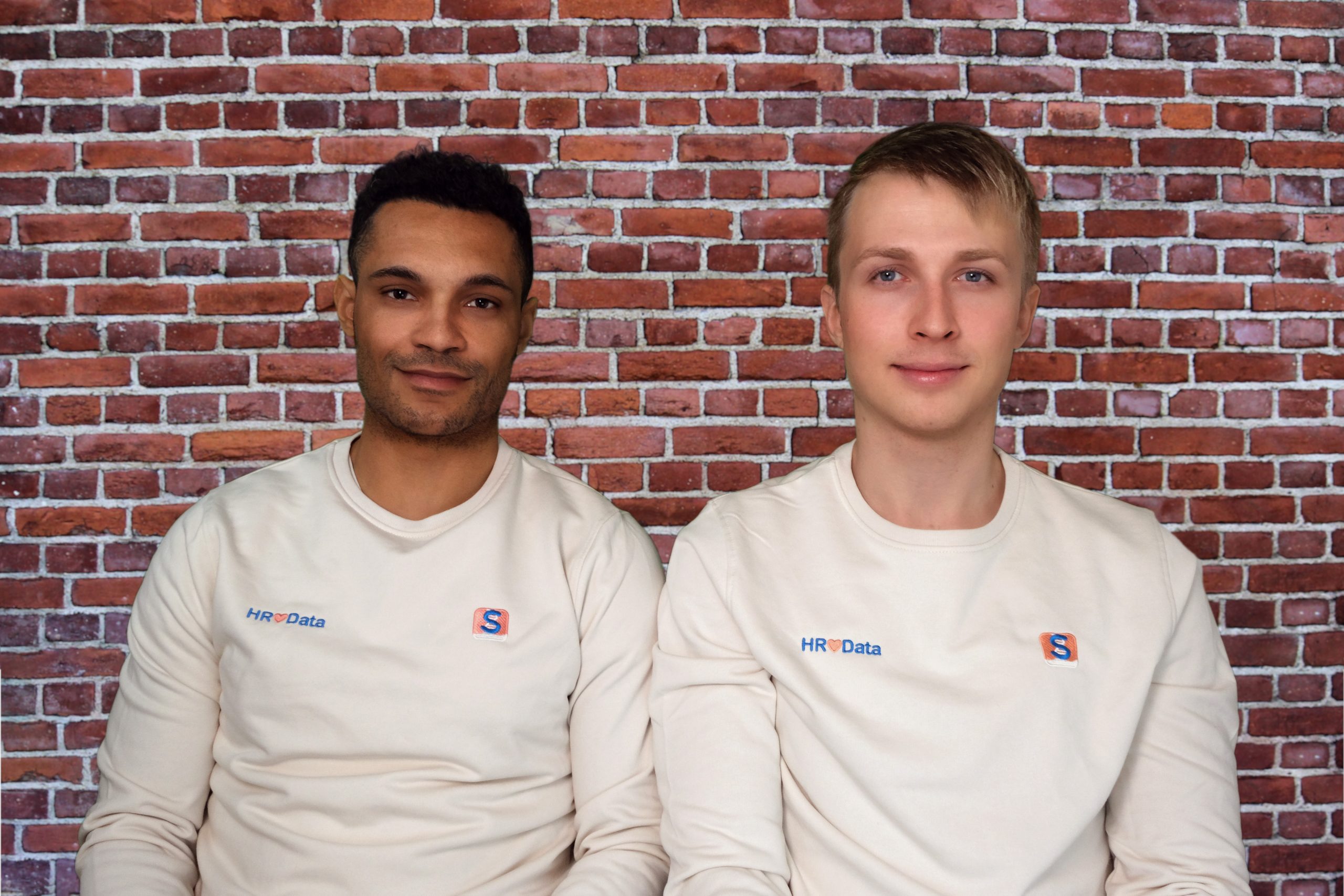the Savvi app offers digital training on the job
Professional life doesn’t stand still and the demand for further education is great. A recent study on further education by the digital association Bitkom shows that 31 per cent of respondents invested more of their working time into further training since the beginning of the pandemic in March 2020.
The majority of those surveyed said that in the coming years they would like to be able to organise their own further training (75 percent). 63 percent want both private and professional training to be part of modern life. Soft skills are particularly in demand alongside specialist knowledge. And the pandemic brought new challenges for companies: executives, for example, had to address the question of how to manage a team effectively and oversee projects from the home office.
Julian Fornoff, co-founder of the MediaTech Hub Accelerator startup Savvi, is a psychologist and has worked extensively in the fields of HR and consulting in his professional career. What he always missed when it came to the professional development of employees was an app-based training programme that also focused on soft skills. Together with his co-founder Colin Weitmann, he developed Savvi which is an app offering professional development training courses for managers as well as such subjects as mental health or resilience. Das Team started their idea withStartup Service der Universität Potsdam and received the start-up scholarship EXIST.
“Mental health, leadership, hybrid leadership from the home office, training for young professionals, productivity, agile management - we currently have a basic set of programmes on offer,” Fornoff says.
Individual microtrainings thanks to personality test
The Savvi team is continually expanding the programme. The app’s offer is directly targeted at companies who purchase licenses for their employees. Those who train with Savvi download the app and complete a personality questionnaire based on skills. Detailed questions such as “Am I good at accepting feedback?” or “Am I good at planning and meeting deadlines?” identify key competences, development potential and also validate the respondents’ weaknesses in the professional field.
Based on the comprehensive questionnaire, the app creates a personal “skill profile” and suggests individual training sessions to the users that can be easily integrated into the daily work routine with sessions lasting around half an hour several times each week. Those managers who don’t feel comfortable with feedback conversations and would like to do better in the future can , for example, receive a personalised offer in the form of daily 30-minute “learning nuggets”. Short videos showing how to be successful in conducting such conversations and application-related tasks for preparation are then on the agenda. The whole thing is supplemented by gamified elements such as quizzes or small daily challenges that keep employees actively involved in the topic. Those who opt for a programme about mental wellbeing, for example, are introduced to associated topics with different focuses, such as a video contrating perfectionism and pragmatism and providing valuable tips for the daily working environment. In addition, there are small tasks where one formulates one’s own goals or has to question behavioural patterns.
“You dive through such mini-impulses virtually on a daily basis. Our claim is to function only via the app. But we collaborate in different ways depending on the client. For example, if there are classic all-day training programmes, we then look at how we can use the app to continue the internal training after this initial period. We also work with some of them holistically, which means that we provide trainers on site. It depends on the particular situation,” founder Julian Fornoff explains.
The digital training plan is based on an algorithm that CTO Colin Weitmann is continuously developing. The team either develops the content itself and relies on internal expertise or works closely with training institutes. That means that they are well versed in such areas as resilience and leadership and cooperate with sales trainers for sales training.
E-learning offers a very exciting prospect for the B2B sector
The market for professional training is vast - on-site training, coaching, workshops, webinars. That’s important for employees, but it also offers many advantages for the companies. Qualified employees are a market advantage, and, given the current skills shortage, one then also binds them more closely to the company and makes oneself attractive as an employer.
At the same time, learning formats will be shorter in the future and are less often being held in person - this is also predicted by Bitkom’s 2022 study for the next five years.
Savvi is aimed specifically at companies with between 300 and 7,000 employees. These are places where there are often many young professionals and sandwich students who typically have learning needs. And the younger target group is also more app-savvy, says Fornoff. Apprentices are an interesting target group in medium-sized companies, and programmes dedicated to young talent are on offer for larger companies. “We look for companies where there is a certain learning culture. Some concerns have their own apps and a dozen e-learning providers. That’s not somewhere we’re going to be active. We are more likely to be working with companies that are offering further education in the classical sense and would now like to expand their services to include a digital learning management system or are looking for innovative stimuli for younger employees.”
Since the launch of the MediaTech Hub start-up’s app on the market, they have already attracted such well-known companies as Gorillas, MLP and Commerzbank as clients. It is particularly important for Savvi in this respect to continue exploring the app’s potential with case studies and feedback discussions and to make an evaluation using the app’s analytics: on which pages do employees spend the most time, which buttons do they click? In addition, Savvi’s UX designers conduct in-depth interviews with the users and observe them as they use the app.
As with any start-up, they are currently operating between product development and customer feedback and sales. This is challenging, but also important for future development. Where can I distribute my product efficiently beyond my network? As a start-up, one shouldn’t underestimate this issue , since what good is it to have the most beautiful product if you can’t find any customers?
So, how effective is app-based working? “Such a learning method via anapp makes sense if it’s a subject where there’s already an awareness. However, if you’re still at the very beginning of the process, I’d suggest having the concept explained in a face-to-face meeting, recommend on-site training or book a trainer to accompany you,” Fornoff suggests.
The fact that the app can be used anywhere and anywhen and continues providing guidance through the chosen topic each day with little stimuli, means that the learning method is sustainable and helps you work on yourself on a daily basis. You can achieve a lot with habits, Fornoff says.
Leadership can be trained in the same way others do with their muscles.
About MTH Blog
The media technologies of the future are already being used today – not only in the entertainment sector, but also in a wide variety of industries. Christine Lentz meets up with tech enthusiasts, established companies and researchers for our monthly MediaTech Hub Potsdam blog to tell the stories behind the innovative business models.



